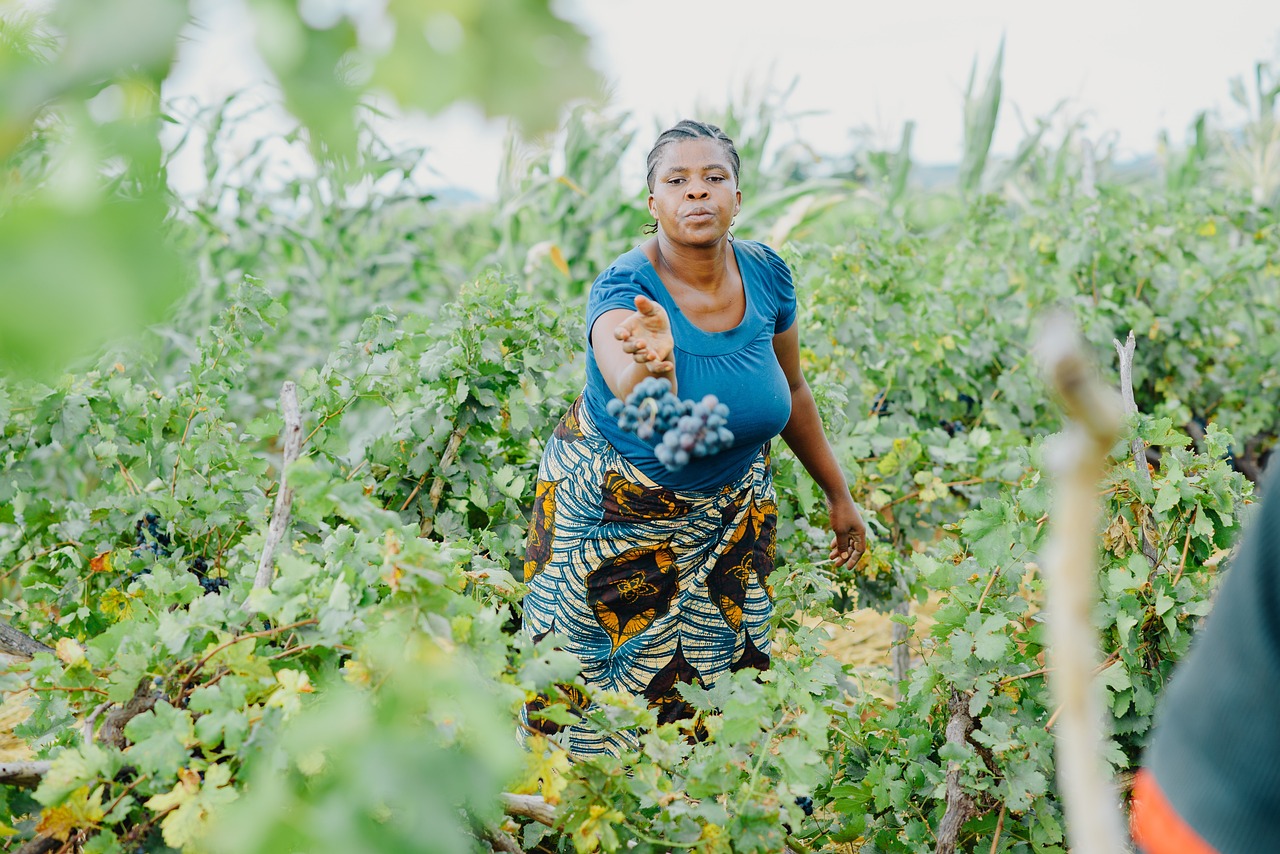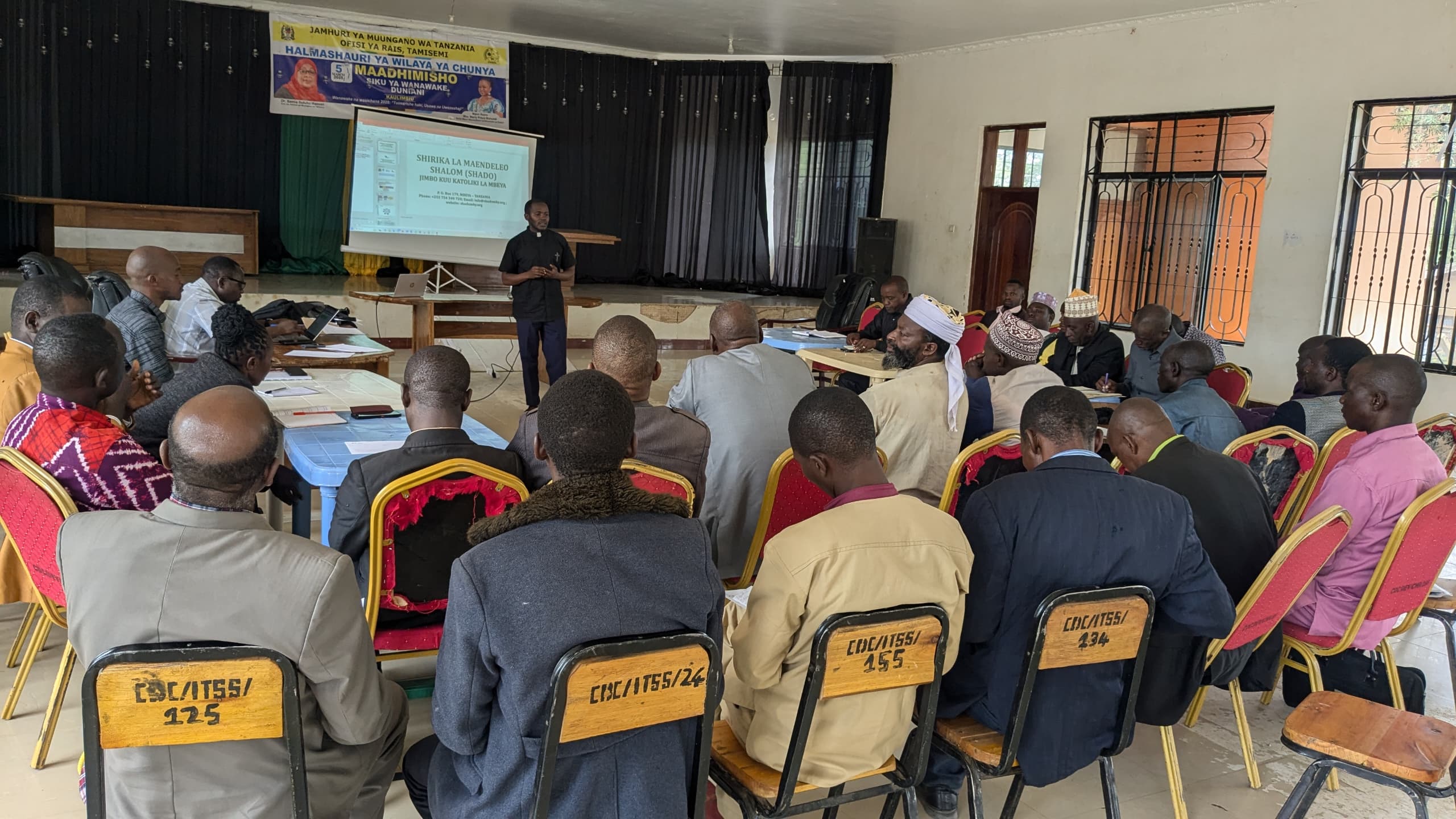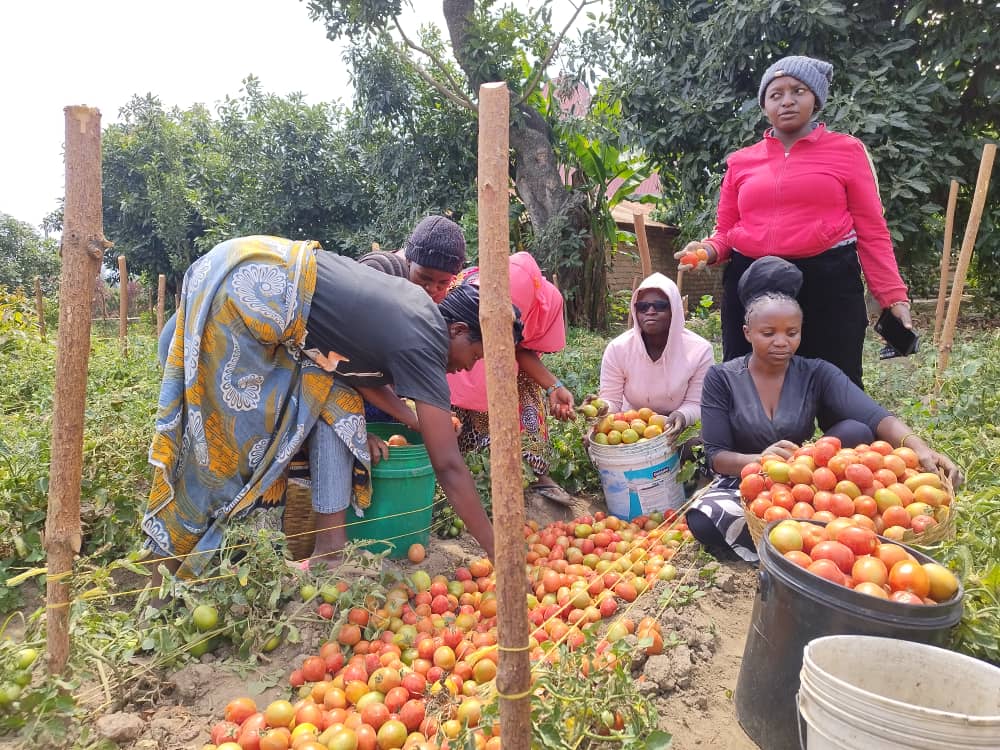Introduction: In the vast landscapes of Africa, where agriculture plays a vital role in the economy and food security, lies a group of resilient and enterprising individuals: African women. These women are the backbone of agricultural activities, yet they face numerous challenges that hinder their full participation and potential. However, organizations dedicated to empowering African women in agriculture are making a remarkable difference, enabling them to thrive, contribute to their communities, and shape a sustainable future. In this blog post, we will explore the significance of supporting African women in agriculture, the challenges they face, and the inspiring efforts being made to uplift and empower them.
- The Importance of African Women in Agriculture: Agriculture forms the backbone of Africa's economy, employing a significant percentage of the population and providing sustenance to communities. African women play a crucial role in agricultural activities, contributing to food production, processing, and marketing. Their involvement ensures food security, poverty reduction, and economic growth, while also promoting gender equality and empowering women as key agents of change.
- Challenges Faced by African Women in Agriculture: Despite their essential role, African women in agriculture encounter numerous challenges that limit their potential:
a) Limited Access to Land and Resources: Cultural norms and legal barriers often restrict women's access to land, limiting their ability to engage in agricultural activities effectively. They also face challenges in accessing credit, modern farming technologies, and quality seeds and fertilizers.
b) Education and Training Gaps: Limited access to education and agricultural training hinders women's ability to adopt modern farming techniques, sustainable practices, and entrepreneurial skills. This knowledge gap affects productivity and income generation.
c) Gender Inequality: Deep-rooted gender biases and discriminatory practices undermine women's decision-making power, representation in agricultural cooperatives, and participation in value chains. This results in unequal access to markets and limited opportunities for growth.
d) Post-Harvest Losses and Value Addition: Inadequate infrastructure, limited access to storage facilities, and processing technologies contribute to post-harvest losses. This prevents women from adding value to their agricultural products and reduces their income potential.
e) Climate Change and Environmental Risks: Women in agriculture are disproportionately affected by climate change, as they rely heavily on natural resources for their livelihoods. Erratic weather patterns, droughts, and environmental degradation pose significant challenges to their productivity and income stability.
- Empowering African Women in Agriculture: Organizations and initiatives are working diligently to empower African women in agriculture and address these challenges:
a) Access to Land and Resources: Advocacy efforts focus on securing land rights for women, promoting gender-inclusive land policies, and facilitating access to credit, inputs, and technologies. Providing women with land tenure security enhances their productivity and economic independence.
b) Education and Training: Programs are being implemented to enhance women's agricultural knowledge and skills through training on sustainable farming practices, financial management, and entrepreneurship. Accessible agricultural extension services and vocational training opportunities are vital for capacity building.
c) Gender Equality and Women's Empowerment: Efforts are being made to promote gender equality in agriculture, encouraging women's participation in decision-making processes, providing leadership training, and fostering women-led agricultural cooperatives. Supporting women's economic empowerment through access to markets and value chains is crucial.
d) Post-Harvest Management: Initiatives focus on improving infrastructure, storage facilities, and processing technologies to reduce post-harvest losses. By empowering women with value addition skills and market linkages, their income potential is enhanced.
e) Climate Smart Agriculture: Projects are centered around promoting climate-smart agricultural practices, resource conservation, and resilience-building among women farmers. Access to climate information, drought-resistant crops, and sustainable irrigation techniques are vital in mitigating climate change risks.

- Success Stories and Impact: The impact of empowering African women in agriculture is evident through inspiring success stories. Women who have received support and opportunities are transforming their lives and their communities:
a) Increased Productivity and Income: With access to training and resources, women are adopting improved farming techniques, resulting in increased agricultural productivity. This, in turn, leads to higher incomes for themselves and their families, lifting them out of poverty.
b) Entrepreneurship and Value Addition: Empowered women are utilizing their skills to add value to their agricultural products through processing and packaging. This enables them to access higher-value markets, command better prices, and generate more income for their households.
c) Leadership and Community Engagement: By actively participating in decision-making processes and forming cooperatives, women are becoming influential leaders in their communities. They are championing sustainable practices, advocating for their rights, and spearheading initiatives that benefit the entire community.
d) Climate Resilience and Sustainability: Women are at the forefront of implementing climate-smart agricultural practices. Through conservation agriculture, agroforestry, and water management techniques, they are adapting to climate change, conserving natural resources, and building resilient farming systems.
- How You Can Make a Difference: Supporting organizations that empower African women in agriculture is a meaningful way to contribute. Consider the following actions:
a) Supporting Women-led Initiatives: Direct your support to organizations that focus on empowering women in agriculture. They provide training, resources, and market access to help women overcome challenges and succeed.
b) Investing in Financial Inclusion: Support initiatives that provide women with access to microcredit, savings groups, and financial services. This enables them to invest in their farms, expand their businesses, and improve their livelihoods.
c) Promoting Gender Equality: Advocate for gender-inclusive policies and practices in agriculture. Encourage equal access to resources, decision-making roles, and market opportunities for women in the sector.
d) Raising Awareness: Share success stories and information about the challenges faced by African women in agriculture on social media platforms. By raising awareness, you can inspire others to join the cause and promote change.
e) Volunteering or Mentoring: Explore opportunities to volunteer your time and skills with organizations working in agriculture. Offer mentorship to women farmers, share your knowledge, and provide guidance on sustainable farming practices or business development.

Conclusion: Empowering African women in agriculture is not just about gender equality; it is about building sustainable and resilient communities. By addressing the challenges they face and providing support in terms of resources, education, and access to markets, we can unlock the immense potential of these women. When African women thrive in agriculture, entire communities thrive. Let us join hands to uplift and empower African women in agriculture, cultivating a sustainable future for all. Together, we can create lasting change and ensure that no woman is left behind in Africa's agricultural journey.



